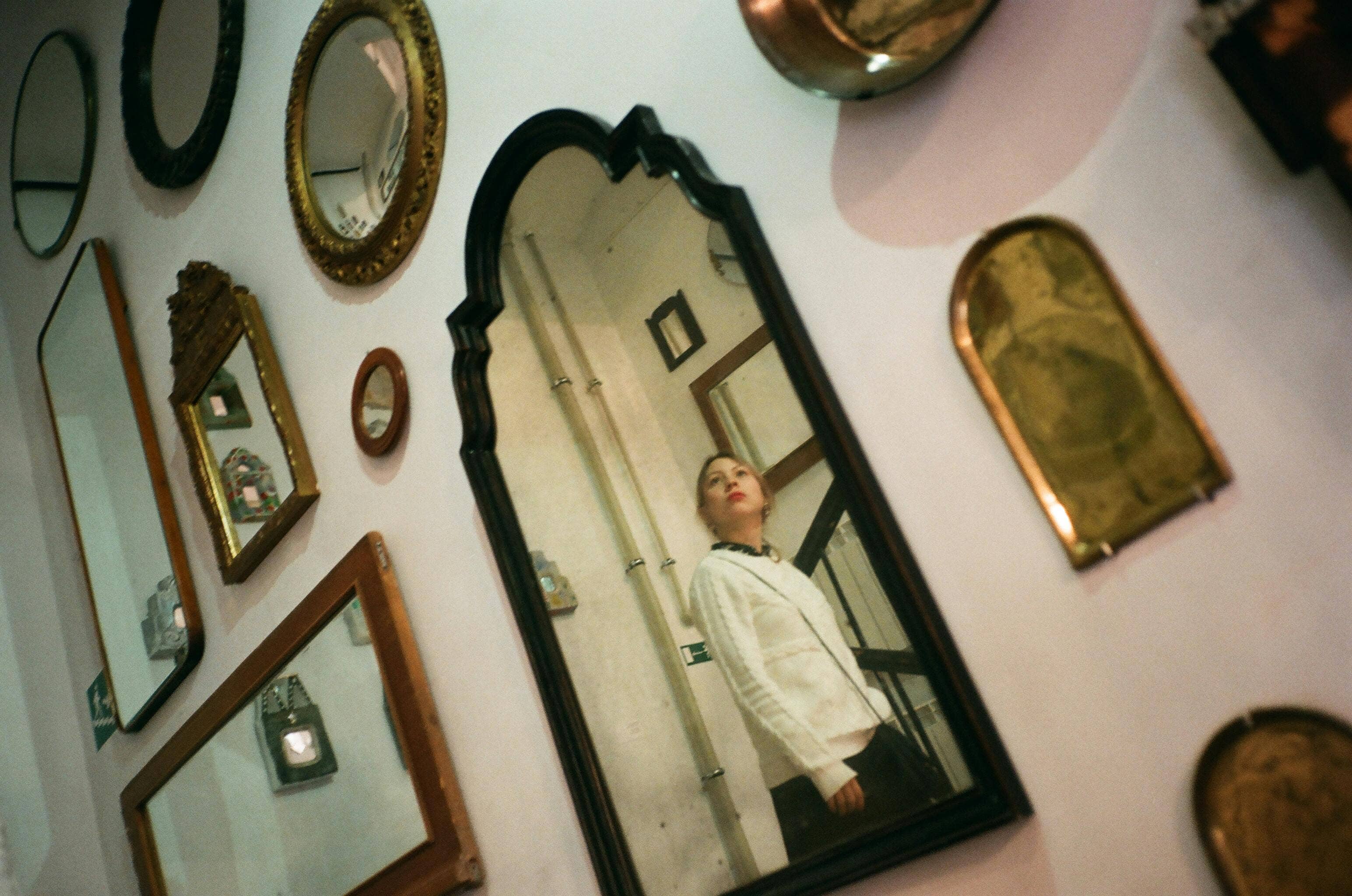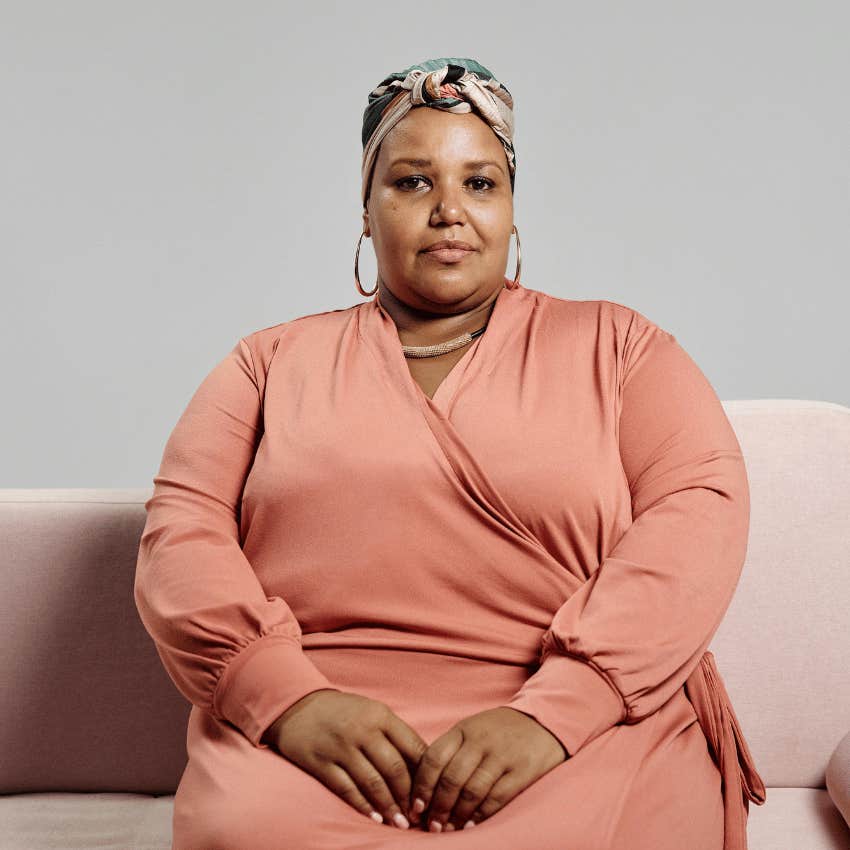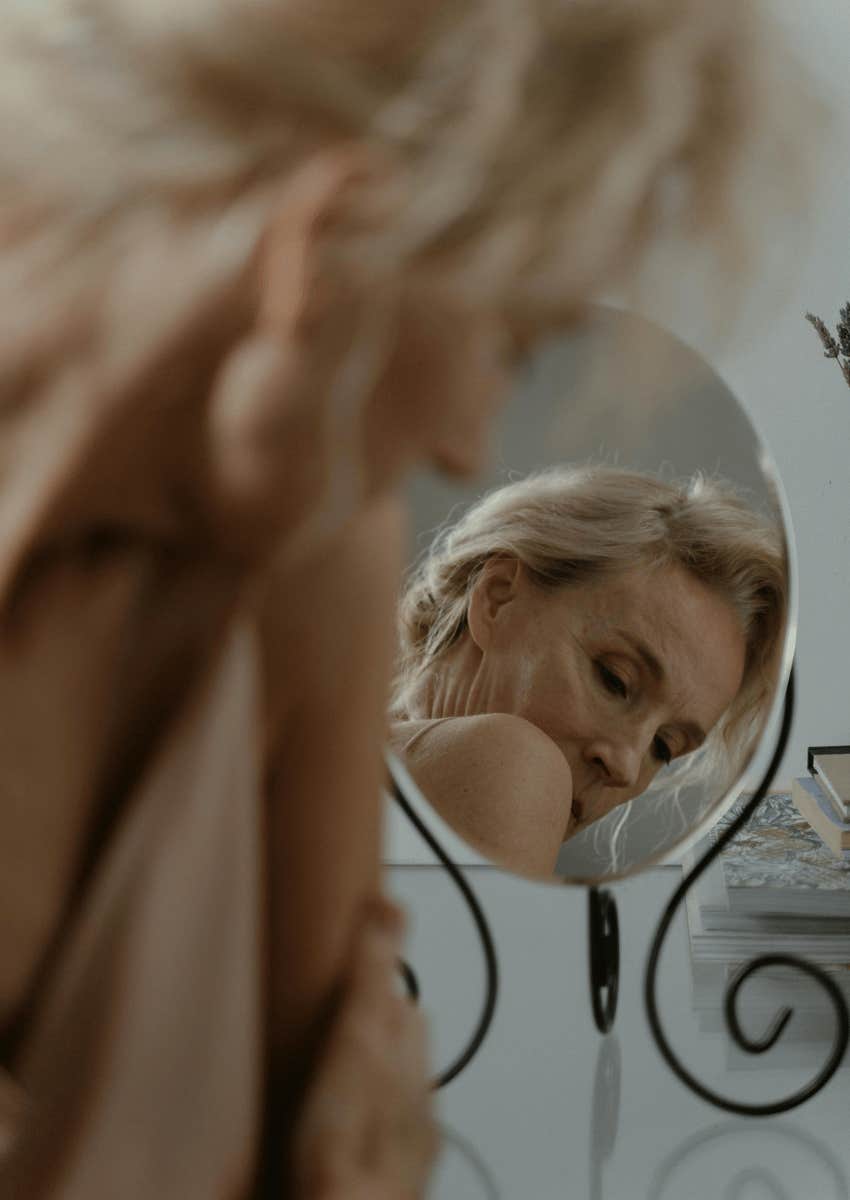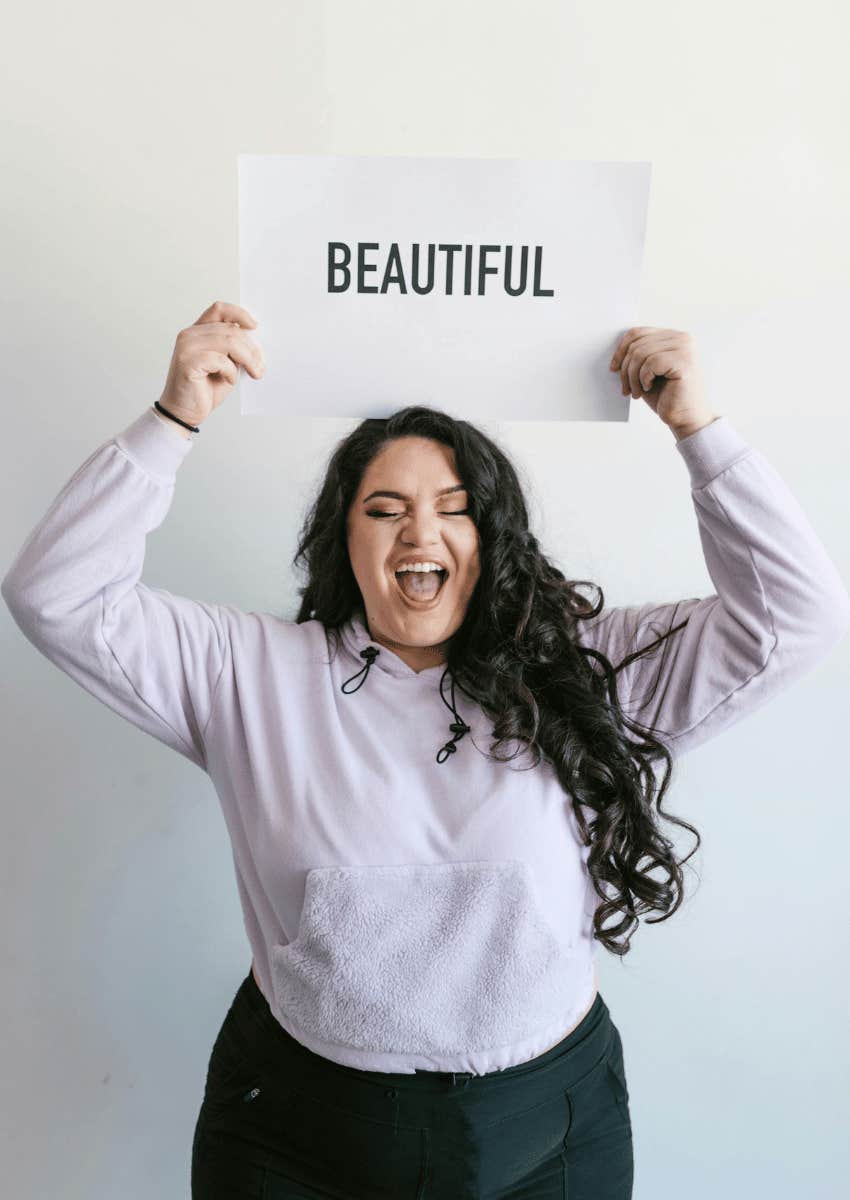Body Dysmorphia Stole My Confidence — 'What I See In The Mirror Is 3x My Size'
When I look in the mirror it’s as if I’m looking into a funhouse mirror that distorts my appearance.
 Darya Sannikova | Canva
Darya Sannikova | Canva When I look in the mirror, I appear bigger and wider than I am, and I know this is due to years of fat-shaming and fatphobia. No matter what I do, I still can’t see things as they are, but how my mind twists them to be. The fat lady doesn’t sing but stares at me from my own eyes.
I’m not a slender woman or even average, but what I see is three times my actual size. I’ve lost weight, but my body image hasn’t caught up. I recently got some new clothes in my regular size and was confused why they were all too big.
Body Dysmorphic Disorder (BDD) is a mental health issue and one I suffer from.
My brother teased me about my weight before I was ever overweight, and my mother was overly critical of my body. I tried not to take their jabs to heart but failed. Now, those taunts are material for my critical inner voice.
According to research, concerns about one's appearance are recognized and accepted in most cultures as an aspect of normal human behavior. However, if these concerns are excessive and are either significantly distressing or impacting the individual's quality of life, the person may be suffering from BDD.
Although BDD was first described over 100 years ago as “dysmorphophobia” from the Greek “dysmorphia,” which refers to ugliness, the evidence suggests it is still underdiagnosed. Failure to recognize BDD can lead to poor physical and psychiatric outcomes for patients, and without treatment, BDD appears to have a chronic course. A major cause of BDD is when someone is bullied or teased relentlessly, creating feelings in the victim of shame, fear, and not being good enough. This fits my experience perfectly.
 Andy Barbour | Pexels
Andy Barbour | Pexels
For some people, their BDD is expressed in constantly working out, having a ton of plastic surgery, or being obsessed with beauty treatments.
It’s more than ensuring your hair is styled, your makeup is on point, and your body is hot — maintaining your looks is a compulsion. But there are BDD sufferers like me who go the opposite way of beauty preoccupation. We avoid mirrors, dress to hide our bodies (no sleeveless shirts,) and often compare ourselves to others, especially other heavy people. Another thing we all do is ask our loved ones if we look okay.
I’m not fishing for compliments when I constantly ask Andy, my boyfriend, how I look, even though I rarely believe him when he says I look good. He has to say that—he loves me. Every worry about my unruly body adds to my anxiety. Simple activities are blown up out of proportion with my BDD.
I haven’t been on a plane in years, and I’m terrified the seat belt won’t be long enough or my chunky body won't fit in the seat. That’s the thing: when you have Body Dysmorphia, nothing is ever easy. Before going to a restaurant, a theater, or any place I haven’t been to, I must scope out the dimensions and then overthink everything.
What if I don’t fit in a booth or the chair doesn’t support my weight? I worry about being unable to remove myself from the booth or breaking the chair I’m sitting in. Neither of these things has ever happened — but try telling that to a mind that’s always catastrophizing — rather than sparking curiosity, the constant “what ifs” make my world smaller and scarier.
Many years ago, when I was much smaller, I was having dinner with friends in a tiny, crowded restaurant in the Montmartre neighborhood of Paris. The tables were packed tightly together—practically on top of each other. I couldn’t see a clear exit and would have to create my own.
All I wanted was to get out there without causing a disturbance, but things did not go well. I tried squeezing behind chairs and asking patrons to move in, but my French was terrible, and I finally had to bulldoze my way through. I felt like Godzilla in a glass shop. The image of me forcing my way through the restaurant has stuck with me all these years.
If I hadn’t panicked, relaxed, and trusted that a way would open up for me, all would have been fine, but my Body Dysmorphia was in full effect. Anything small and crowded, like airplanes, is a place to be avoided.
 Ron Lach | Pexels
Ron Lach | Pexels
I haven’t flown anywhere in ages because of my BDD, but the time has come to get over this fear or at least learn how not to give it control over my life.
Andy and I are going to Hawaii in less than a month, and I plan to break many of the rules I’ve set for myself. I’m bringing two bathing suits and a couple of sleeveless dresses, and I’ve booked premium plus seats in the main cabin. These seats aren’t wider, but they do have more legroom.
I’m working on seeing myself. I take every opportunity to look at myself, often in the mirror or at my friends' photos. I’ve even started taking some selfies — and guess what? They’re not horrifying. Rather than getting worked up, I take deep breaths and calmly maneuver through a restaurant. I remind myself that feelings aren’t facts; although I feel massive, that’s not true.
According to research, social media is becoming increasingly popular among younger generations, and the mental health effects of its usage are widely unknown. Usage of social media may be linked to an increased rate of body dysmorphic disorder (BDD) symptoms among users. It may harm users' body perceptions, based on prior research establishing correlations between social media usage and body image, satisfaction, and surveillance.
 RDNE Stock project | Pexels
RDNE Stock project | Pexels
The more comfortable and honest I am with myself, the better I’ll feel. To accomplish this, I must change how I view my reflection and look beyond my appearance.
I have strong arms to give loving hugs, broad shoulders on which someone can lean their head, and powerful legs to keep me moving forward. In another time, I would have been a beautiful ideal, but that doesn’t mean I can’t rejoice and be grateful for the body I have right now.
Over the last several months, I’ve lost many people close to me. Since their lives were cut short, it’s up to me to be their proxy and live life to the fullest. I don’t think any of them would let Body Dysmorphia stand in their way of having a good time, so I shouldn’t either.
Time is too precious to hate your body and not see your beautiful self when looking in the mirror. This is my only body, and I make a promise to see and accept it no matter what.
Christine Schoenwald is a writer, performer, and frequent contributor to YourTango. She's had articles featured in The Los Angeles Times, Salon, Bustle, Medium, Huffington Post, Business Insider, and Woman's Day, among many others.

